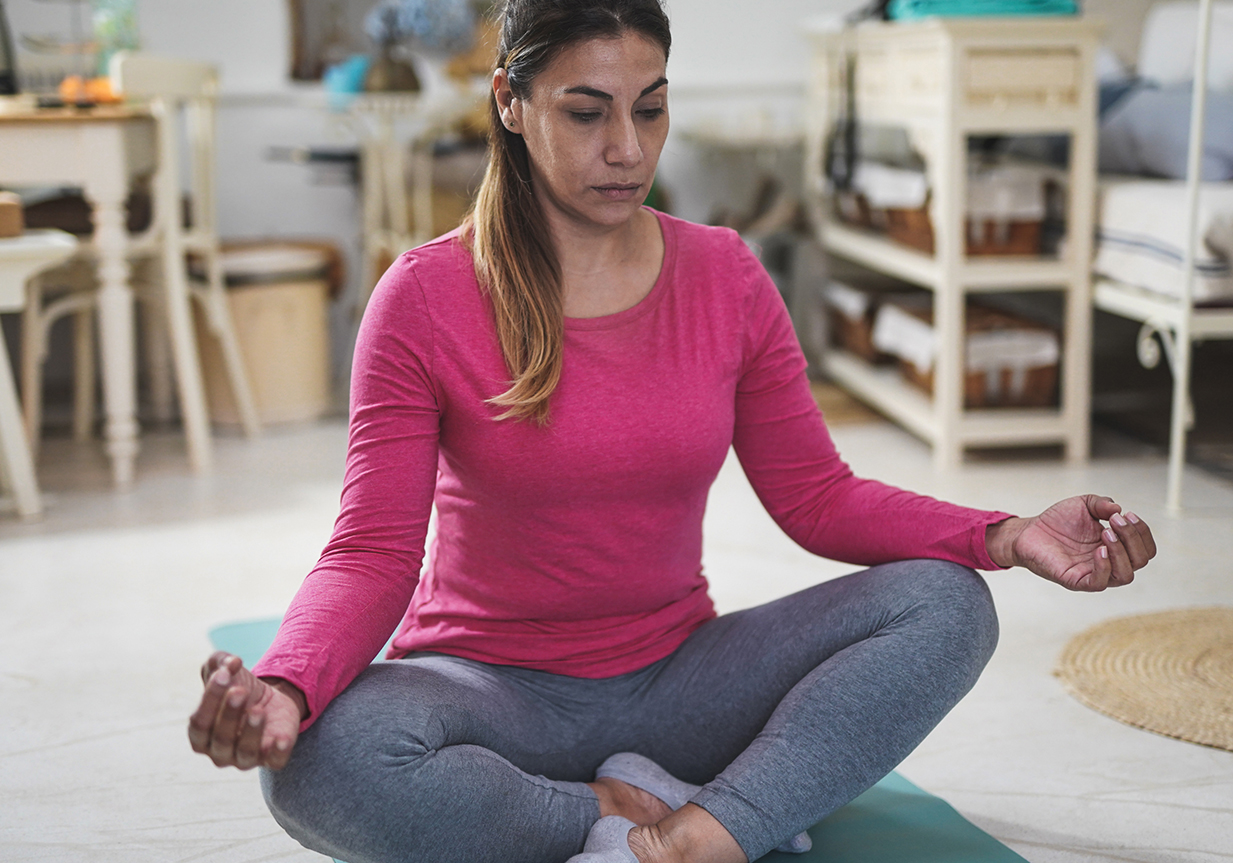Chronic stress can lead to chronic conditions, as outlined by the Mayo Clinic and Yale Medicine. Long-term stress can put you at higher risk of heart disease, obesity, hypertension, diabetes, and arthritis–just to name a few.
For people already living with chronic conditions, keeping stress at bay is even more critical. Many institutions, such as the Hospital for Special Surgery, recognize the impact of stress on people managing their chronic care and recommend patients find strategies to reduce their stress.
Pod Health strives for healthcare innovation, and our Chronic Care Management services are available for individuals who suffer from two or more chronic illnesses, and would benefit from an RN led initiative that oversees a patient's health care plan. Chronic care management can be stressful–we can help make a patient's health care journey a smoother and simpler process.

Understanding the impact of stress on health and well-being
Stress is not just a temporary inconvenience; it can have a profound impact on our overall health and well-being. Research has shown that chronic stress can lead to a wide range of physical and mental health issues, including hypertension, cardiovascular disease, anxiety, and depression. When left unchecked, stress can compromise our immune system and increase the risk of developing chronic conditions.One of the reasons stress has such a significant impact on our health is because it triggers the release of stress hormones like cortisol and adrenaline. While these hormones are designed to help us cope with immediate threats, prolonged exposure to them can take a toll on our bodies.
In addition to the physical toll, stress can also affect our mental and emotional well-being. It can make us feel overwhelmed, irritable, and anxious, and hinder our ability to think clearly and make sound decisions.
It is crucial to recognize the symptoms of stress and take proactive measures to reduce its negative effects. Implementing self-care strategies and incorporating tools like Pod Health's Chronic Care Management services and/or remote patient monitoring devices can make a significant difference in managing stress and promoting a healthier and more balanced life.

Recognizing the signs of stress and its effects on daily life
In our fast-paced world, stress has become a common companion for many. Unfortunately, it often goes unnoticed or ignored until it starts affecting our daily lives. That's why it’s essential to recognize the signs and understand how it can impact us both physically and mentally.Stress can manifest in various ways, from physical symptoms like headaches, muscle tension, and fatigue to emotional and behavioral signs such as irritability, mood swings, and changes in appetite. It can also affect our sleep patterns, causing difficulties falling asleep or staying asleep throughout the night.
Additionally, chronic stress can lead to burnout, a state of mental and physical exhaustion that can make even the simplest tasks feel overwhelming. It can also impair our concentration, memory, and decision-making abilities, hindering us from performing at our best.
By learning to recognize these signs, we can take proactive steps to manage stress and prioritize self-care. By exploring practical strategies to incorporate into your daily routine, you can reduce stress and promote a healthier and more balanced life.

Strategies for managing stress and promoting self-care
Now that we have a better understanding of how stress can impact our lives, it's time to explore practical strategies to manage stress and prioritize self-care. These strategies can help us reduce the negative effects of stress and promote a healthier and more balanced life.- Practice mindfulness: Mindfulness is the practice of being fully present in the moment and non-judgmentally observing our thoughts and feelings. By incorporating mindfulness into our daily routine, we can reduce stress and increase our overall well-being. This can be done through meditation, deep breathing exercises, or simply taking a few minutes each day to focus on our senses and be present in the moment.
- Establish healthy boundaries: It's important to set clear boundaries in our personal and professional lives to avoid becoming overwhelmed and burned out. This means learning to say no when necessary, delegating tasks, and prioritizing our own needs. By recognizing and respecting our limitations, we can reduce stress and create a more balanced and fulfilling life.
- Engage in self-care activities: Self-care activities are essential for maintaining our physical, mental, and emotional well-being. This can include activities such as exercise, spending time in nature, pursuing hobbies, practicing relaxation techniques, or connecting with loved ones. These activities allow us to recharge and rejuvenate, keeping stress at bay and promoting overall wellness.
- Seek support: Don't be afraid to reach out for support when needed. Whether it's talking to a trusted friend or family member, seeking professional help from a therapist or counselor, or joining a support group, having a strong support system can make a significant difference in managing stress and maintaining a healthy lifestyle.

Prioritizing self-care in your daily routine
In order to truly prioritize self-care, it's essential to make it a part of your daily routine. Many of us lead busy lives and often neglect our own needs in favor of taking care of others or meeting work obligations. However, incorporating self-care into our daily routines is crucial for maintaining a healthy and balanced life, as well as managing stress effectively.One of the first steps towards prioritizing self-care is to identify the activities or practices that bring you joy and help you relax. These can be different for everyone, so it's important to explore and experiment with different self-care practices to find what works best for you. It could be something as simple as taking a long bath, reading a book, or going for a walk in nature. Whatever it is, make it a point to do it regularly.
Another important aspect of prioritizing self-care is setting boundaries. This means learning to say no when necessary and not overloading your schedule with commitments. By setting boundaries and taking time for yourself, you are effectively communicating your needs and ensuring that you have the time and energy to take care of yourself.
It's also crucial to make self-care a non-negotiable part of your day. Schedule specific times for self-care activities and treat them as important appointments that cannot be canceled or rescheduled. This will help you create a routine and ensure that you are consistently making time for yourself.
Remember, self-care is not selfish. It is necessary for your overall well-being and happiness. By prioritizing self-care in your daily routine, you will not only be better equipped to manage stress, but you will also be able to show up as your best self in all areas of your life.

Seeking support from professionals and loved ones
One of the crucial aspects of prioritizing self-care is recognizing when you need additional support. Seeking support from professionals and loved ones can play a significant role in managing stress and maintaining a healthy lifestyle.Professionals such as therapists, counselors, or coaches can provide guidance and help you develop strategies for coping with stress. They can assist you in exploring the root causes of your stress and offer effective techniques to manage it. Furthermore, seeking professional support can provide a safe space for you to express your thoughts and emotions, helping you gain clarity and develop a healthier mindset.
In addition to professional help, don't underestimate the power of support from loved ones. Sharing your feelings and concerns with trusted family members or friends can provide a sense of comfort and understanding. They can offer valuable advice, listen without judgment, and provide the emotional support you need during challenging times.
Remember, seeking support is not a sign of weakness but rather a proactive step towards self-care. By reaching out to professionals and loved ones, you are taking control of your well-being and creating a support network that can help you navigate through stress more effectively.

The long-term benefits of stress management and self-care
Prioritizing stress management and self-care is not just about finding temporary relief from our daily pressures. It is about creating a sustainable and healthier lifestyle in the long run. By consistently practicing stress management techniques and self-care strategies, we can reap numerous benefits that go beyond immediate stress reduction.One of the significant long-term benefits of stress management is improved physical health. Chronic stress can take a toll on our bodies, leading to various health issues such as high blood pressure, weakened immune system, and cardiovascular problems. By effectively managing stress, we can reduce the risks of these health conditions and enhance our overall well-being.
Furthermore, self-care has a profound impact on our mental and emotional well-being. Taking time to nurture ourselves mentally and emotionally helps in building resilience and improving our ability to handle stress more effectively. When we prioritize self-care, we are better able to manage our emotions, make rational decisions, and maintain a positive mindset.
In addition, incorporating stress management and self-care practices in our daily lives can enhance our relationships. When we prioritize our mental and emotional well-being, we are better equipped to connect with others and build healthy and meaningful connections. By taking care of ourselves, we can show up as our best selves in our relationships.
Ultimately, stress management and self-care are investments in our overall quality of life. By practicing these strategies consistently, we empower ourselves to lead healthier, happier, and more fulfilled lives.

Taking control of your stress and living a healthier life
By prioritizing stress management and self-care, we can take control of our stress levels and create a healthier life. It is important to remember that stress management is not a one-time fix, but a continuous practice that requires consistency and commitment. By incorporating practical strategies and techniques into our daily routine, we can effectively manage stress and improve our overall well-being.Some practical strategies include practicing mindfulness and meditation, engaging in regular physical activity, and establishing healthy boundaries. It is also important to prioritize self-care activities that bring us joy and help us recharge, such as practicing a hobby or spending quality time with loved ones.
Remember, taking control of our stress and prioritizing self-care is a journey, and it may take time to find what works best for us. It is essential to be patient with ourselves and allow room for growth and discovery. By investing in our well-being, we are investing in a healthier and happier future.
Living with chronic conditions doesn’t mean you have to live with it alone. Our team of medical experts work in addition to a patient’s current healthcare team, supporting their care management. If you are looking for additional peace of mind, and less stress, Pod Health can help.
Disclaimer: This blog does not provide medical advice. The information in this blog is for informational purposes only and is not intended to be a substitute for professional medical advice, diagnosis, or treatment. Always seek the advice of your physician or other qualified healthcare provider with any questions you may have regarding a medical condition or treatment and before undertaking a new health care regimen.







